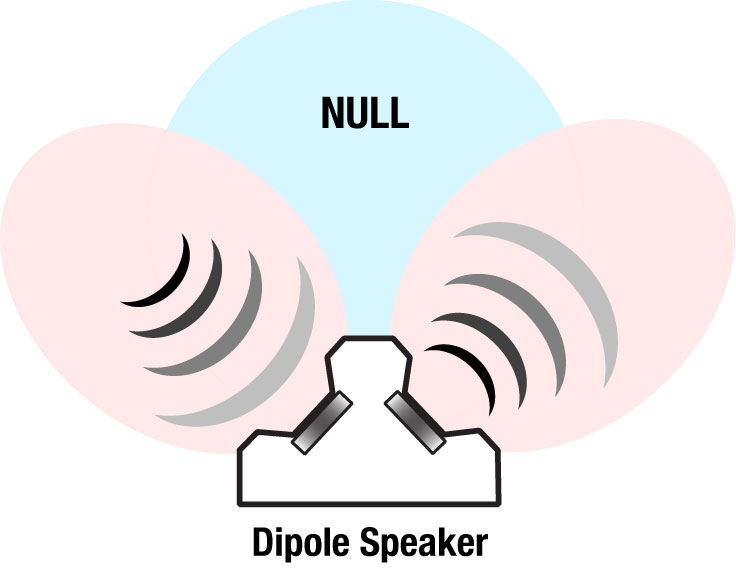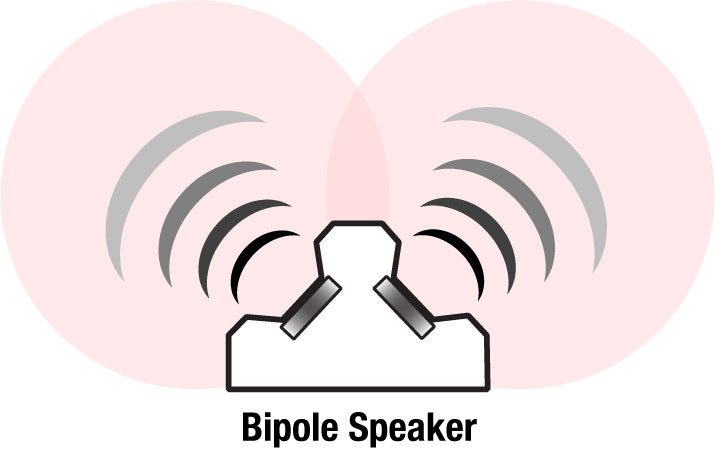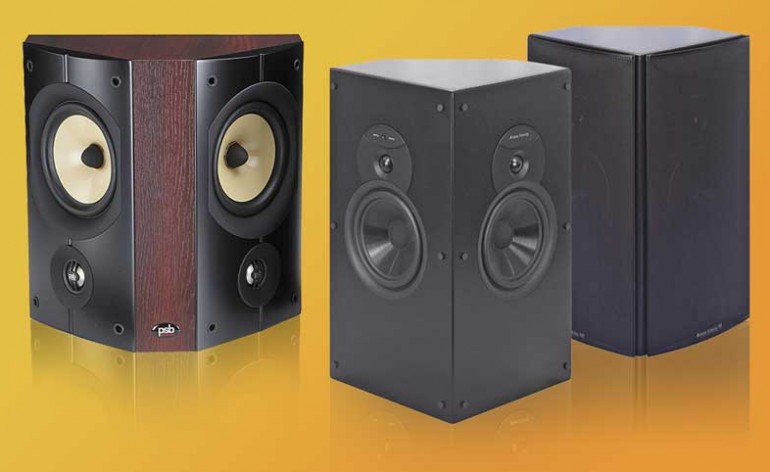Can I Use Bipole or Dipole Speakers as Fronts?
Many people find themselves coming across a deal or somehow getting gifted speakers. They end up with these speakers that work, but maybe aren’t the “correct” speakers for what they need. When Dolby introduced Atmos (and DTS countered with DTS:X), bipole and dipole speakers fell out of favor. Many people have since upgraded to direct radiating speakers for surround speakers. It is possible that you’ve found yourself in possession of one of these types of speakers and nothing else. Can you use these bipole or dipole speakers as front speakers? Let’s discuss!
Short Answer: Depends
We’ve delineated the difference between dipole and bipole speakers before. The images below should help you out.


As you can see, the dipole speaker creates a null directly in front of the speaker. A “null” is when the sound from each side of the speaker cancels each other out. This is designed to provide a very diffuse sound signature which was prized for surround speakers. We still recommend dipole speakers when you have to place your surround speakers very close to your seat.
The bipole speaker doesn’t have the same null. While the bipole speaker sounds more diffuse than a regular speaker, it doesn’t have the same “dead zone” of the dipole. Generally speaking, both dipole and bipole speakers work well for surround duties, but neither is normally placed as fronts.
Bipole: Yes, Dipole: No
Of course, nothing is stopping you from using either bipole or dipole speakers as fronts. But bipole would be the superior option if you had to choose one. The null of the dipole speakers makes them less appropriate for the front of your room.
Bipole speakers will sound more diffuse than regular speakers, but they still should provide a decent experience. With the null of the dipole speakers, you might run into the situation where some people on your couch hear the majority of the sound coming from the speaker on the other side of the TV (if they are sitting in the null). Some speakers have a switch on the back that will change them from bipole to dipole (and back). If you are going to use them as fronts, choose bipole.
What About a Center?
Since both of these speakers are designed for a diffuse sound, a center speaker will probably not be necessary. The two speakers, especially if they are fairly close to each other, would likely make a center speaker unnecessary. It would be nearly impossible to find one that matches the same diffuse sound anyhow. If you are going to use bipole or dipole speakers as your front, don’t bother with a center until you upgrade all three. Then you can move your bi/dipole speakers to surround duties where they belong.


